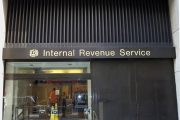
The Bilderberg meeting scheduled to take place from May 31 to June 3 at the Marriot Westfield’s Washington Dulles Hotel and Conference Center (pictured, left) has scarcely attracted any attention in the mainstream media. The only notable exception has been Politico, which has taken interest in the agenda that the attendees will be tackling, most notably the choice for GOP vice presidential nominee. But despite Politico’s coverage of the upcoming event, it still dismissed any sort of opposition to the Bilderberg group as conspiracy theory and fanaticism, and rejected the notion that the Bilderberg group has an all-powerful influence on American politics.
Politico reported this weekend on the increasing rumors that Florida Senator Marco Rubio would be the choice for vice president by the Bilderberg group. And while most believe Rubio to be the clear choice for the vice presidential position, Politico did not miss the opportunity to also marginalize those who are opposed to the Bilderbergers, and seemed to dismiss any speculation on the Bilderberg agenda, including the vice presidential pick, as “conspiracy theory.”
Politico writes, “According to a dedicated band of conspiracy theorists, the pick is all but a lock: Sen. Marco Rubio.” It then continues, “That’s the current thinking among a worldwide collection of activists who are obsessed with the secretive Bilderberg Group.”
Politico painted a very vivid and one-sided picture of the Bilderberg opposition:
Yet in the netherworld of conspiracy theory, the group is part of an insidious corporate-globalist scheme. And this year, the speculation holds, the Bilderberg Group is set to hold its annual meeting in the coming weeks at a Northern Virginia hotel where, among other things, they likely will select Rubio as Romney’s running mate.
Paranoid? Perhaps.
Still, the media outlet could not ignore the evidence that the Bilderbergers have some influence in political spheres, citing John Edward’s speech to the Bilderberg Group’s 2004 Bilderberg Group’s meeting that “reportedly helped clinch his selection as that year’s Democratic vice presidential candidate.”
But despite what Politico’sreport would have you believe, that is not the only time we have seen evidence of Bilderberg’s influence.
Bilderberg chairman Etienne Davignon was caught bragging in 2009 that the Euro single currency was actually a recommendation of the Bilderberg group.
“A meeting in June in Europe of the Bilderberg Group — an informal club of leading politicians, businessmen and thinkers chaired by Mr. Davignon — could also ‘improve understanding’ on future action, in the same way it helped create the Euro in the 1990s, he said,” reported the EU Observer in March 2009.
The Bilderberg’s leaked documents prove that the notion of the Euro single currency was laid out by the Bilderbergers in the mid-1950s. A 2003 BBC investigative team confirmed this. And we all know how well the Euro is doing.
Further proof of the Bilderberg group’s influence came in the spring of 2002, when the Bilderbergers asked the Bush administration to delay its summer invasion of Iraq, which it did. The attack on Iraq was not launched until March 2003.
Journalists who were privy to Bilderberg information reported in 2006 that the United States housing market would soar before the bubble would pop, and history reveals that is just what happened.
The Bilderberg group is also credited with handpicking candidates for positions of power. In the United States, the Bilderbergers have played significant roles in the choice of vice presidential candidates. Joe Biden was selected as President Obama’s running mate by Bilderberg luminary James Johnson, claim astute observers of the elite organization.
The Bilderberg seems to play a significant role in the entire presidential election process in general. In June of 2008, for example, the press lost track of the whereabouts of both Barack Obama and Hillary Clinton in Northern Virginia, where a Bilderberg group was “coincidentally” hosting a meeting.
And in 2009, Politico’s Ken Vogel reported that Obama’s officials were delivering private meetings to Bilderberg members in Greece.
Perhaps the most compelling evidence of the power that the Bilderbergers have came out during an interview on the Belgian news website www.zonnewind.be, wherein former NATO Secretary-General and Bilderberg member Willy Claes told host Koen Fillet that Bilderberg does decide policy.
Claes admitted that Bilderberg guests are normally given around 10 minutes of talk time, after which a report of their presentation is compiled.
“The participants are then obviously considered to use this report in setting their policies in the environments in which they affect,” stated Claes, according to the translated text.
Regardless of this array of evidence, Mitt Romney adviser Vin Weber dismisses any claims that the Bilderbergers have an insidious agenda or are more greatly involved in the American political system than they should be.
“These are influential folks — and they’ve all got friends in American politics — so if they see somebody that impresses them or doesn’t, I expect that they would pass that view on,” said Weber, a former Minnesota congressman who has attended two Bilderberg meetings. “But I would tell all of those bloggers and protestors to save their outrage for a real conspiracy, because this is just a conference.”
Similarly, Robert Kagan, another Romney adviser, attempted to paint over the Bilderberg’s power by asserting that the conference is merely “a lot of vaguely uninteresting people giving vaguely uninteresting lectures and then having nice meals in nice places.”
Not everyone is part of the Bilderberg coverup, fortunately. Texas Congressman and GOP presidential contender Ron Paul has been an outspoken opponent of the Bilderberg Group as well as the New York-based Council on Foreign Relations.
Paul has been particularly concerned by the agendas that the groups support, such as Keynesian economics and an interventionist foreign policy.
Paul’s skepticism of the groups did not go unnoticed in Politico’s piece, however. In mentioning this, the outlet took the opportunity to take yet another jab at Bilderberg opponents and Paul supporters simultaneously:
Such concerns are not uncommon on the far edges of the anti-government spectrum of thinking, where the far left and the far right find common cause over their distrust of Wall Street and Washington. The rise over the past few years of the tea party and Occupy protests has spread similarly strong anti-establishment messages. And that’s expanded the audience for conspiracy theories about U.S. government involvement in the Sept. 11, terrorist attacks and plots hatched at Bilderberg, Trilateral and the Council on Foreign Relations.
Fortunately, alternative media outlets have been exposing the Bilderberg Group and its agenda and influence. As a result, the Bilderbergs will be greeted with protests in Virginia, comprised of people who are uncomfortable with the globalist agenda of the secretive organization.
OccupyBilderberg.org explains, “Occupy the REAL 1% (closer to 0.01%) -> In the year 2012, Truth Exposed Radio, WeAreChange San Antonio, and FunkMasterFive are uniting activist groups from around the world to finally expose the Bilderberg Group in Chantilly, Virginia, May 31 until June 3.”




